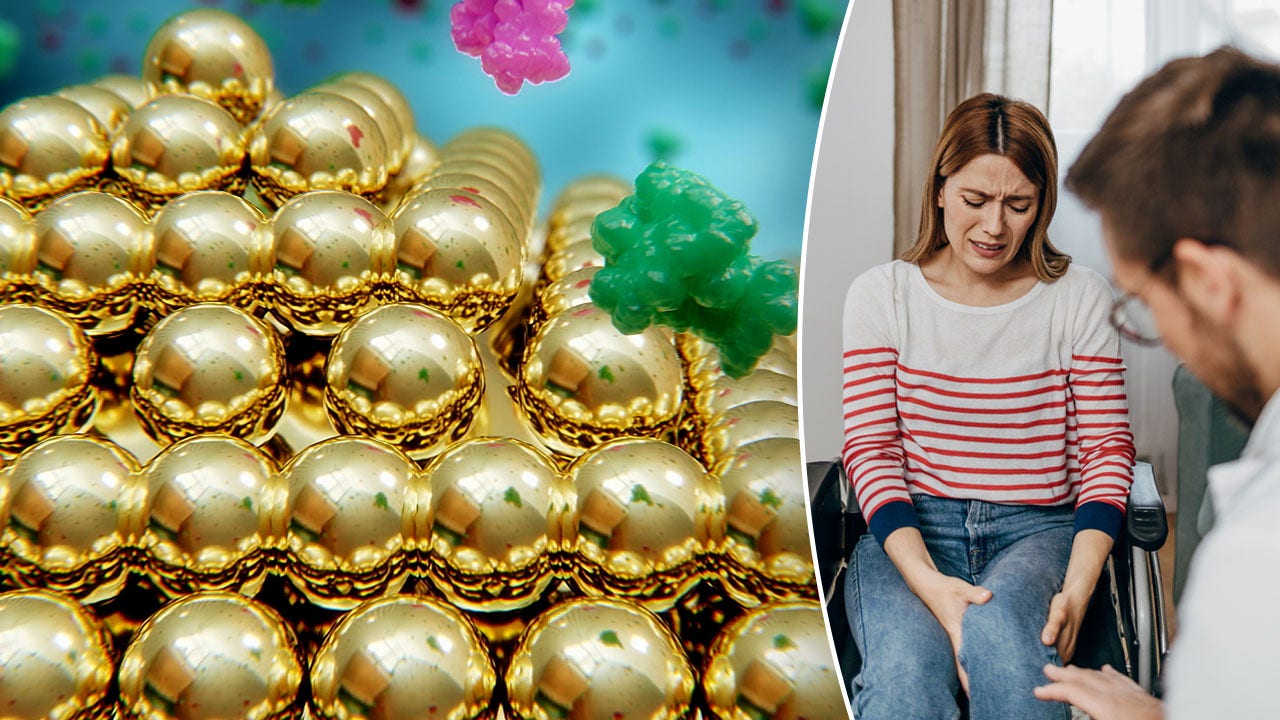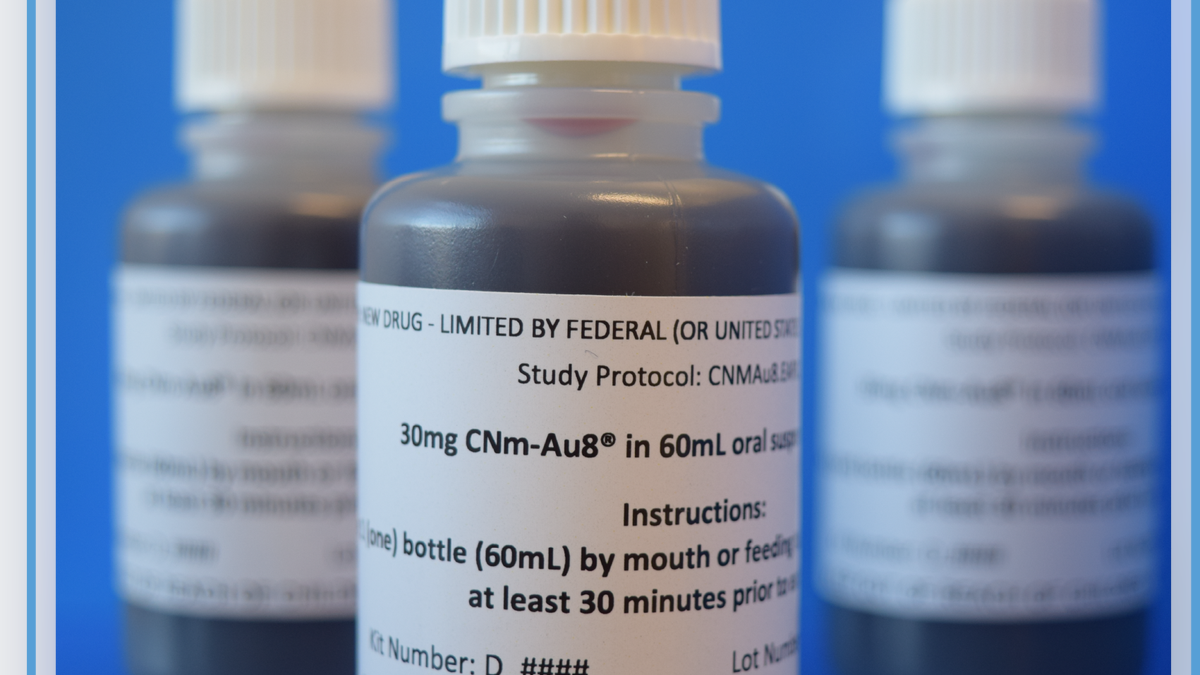Health
Maternal mortality in US overestimated by CDC, new study shows

The number of maternal deaths previously reported by the CDC may be inaccurately rising, a study recently revealed.
Flawed or imperfect record-keeping could be the culprit for what seems to be a spiking rate of maternal deaths across the U.S.
Maternal death is defined as “the death of a woman while pregnant or within 42 days of termination of pregnancy, irrespective of the duration and the site of the pregnancy, from any cause related to or aggravated by the pregnancy or its management, but not from accidental or incidental causes,” according to the World Health Organization.
Common causes of maternal mortality include excessive bleeding, infection, heart disease, suicide and drug overdose.
MATERNAL DEATH RATE IS ON THE RISE IN THE US, THE CDC REPORTS
Black mothers died at the nation’s highest rate, according to a 2023 study done by the Journal of the American Medical Association. (iStock)
A study in the American Journal of Obstetrics & Gynecology found that one checkbox on death certificates may have been misused. Deaths recorded that included at least one mention of pregnancy were analyzed. Data was collected from the National Center for Health Statistics (NCHS) from the time periods of 1999 to 2002 and 2018 to 2021 and was examined by researchers.
Specifically, researchers looked into the death certificates of women who were pregnant at or around the time of their deaths. The compared findings between these years were conclusive to “stable” deaths “at just over 10 per 100,000 live births,” according to Axios.
However, the report from the CDC recorded that there was an uptick in maternal mortality rates per live births from 2018 to 2020. In 2018, the CDC presented 17.4 deaths per 100,000 live births, 20.1 deaths per 100,000 in 2019 and 23.8 deaths per 100,000 in 2020.
The requirements for using the checkbox changed in 2018, constraining only deaths in women ages 15 to 44 to be included. Though the deceased shown in the report still include accidental deaths, like car accidents, versus being limited to what is categorized by the WHO as maternal deaths.
And though maternal deaths may not be spiking as previously recorded by the CDC, they are a very serious public health concern across the U.S.
In 2023, Black mothers died at the nation’s highest rate, according to a study done by the Journal of the American Medical Association. In Arkansas, in 2021, a state report showed that Black women are twice as likely to experience maternal mortality than white women.
The NCHS this week concluded that the cause of death in non-Hispanic Black women was more due to ectopic pregnancy, cardiovascular conditions and kidney and other diseases, according to Axios.
An increase in maternal death among non-Hispanic White women increased, though the report showed that fatal cardiomyopathy and other causes of death were disproportionately more common among non-Hispanic Black women.
For more Lifestyle articles, visit www.foxnews.com/lifestyle.

Health
This Is Why You’re Not Losing Weight on Semaglutide + Doctors’ Tips To Speed Results

Sign Up
Create a free account to access exclusive content, play games, solve puzzles, test your pop-culture knowledge and receive special offers.
Already have an account? Login
Forgot your password?
Get back to the Sign In
Use left and right arrow keys to navigate between menu items.
Use escape to exit the menu.
Health
A mother's heartbreaking story, plus mammogram guidance and cancer-fighting nutrients

Derek McFadden, pictured at left with his mom Robin McFadden, was 23 when he took his own life on Aug, 17, 2018, in Tucson, Arizona. (Robin McFadden)
‘BROKE MY HEART’ – A New York mother said she believes chronic sleep deprivation contributed to her son’s suicide. She shares the heartbreaking story with Fox News Digital. Continue reading…
‘GREATER EMPATHY’ – Patients who see female physicians could live longer, a new study finds. Experts weigh in. Continue reading…
SCREENING OUT CANCER – Women should get mammograms every other year starting at age 40 instead of 50, according to updated recommendations from the U.S. Preventive Services Task Force. Here’s why. Continue reading…

The previous guidance stated women should begin biennial mammograms at age 50, but could opt to begin as young as 40. (iStock)
THE GOLD TREATMENT – An experimental “liquid gold” medication could bring new hope to multiple sclerosis patients, a study suggests. Continue reading…
CANCER BY THE NUMBERS – A new report reveals the latest trends in cancer diagnoses and deaths. See the top 5 observations. Continue reading…
SECRET WEAPON? – A common nutrient could help to boost cancer immunity, a new study suggests. Experts share the potential benefits. Continue reading…

Dietary vitamin D, found in foods including salmon, increased levels of the bacterium Bacteroides fragilis, which has been shown to improve cancer immune response. (iStock)
STROKE STOPPERS – A physical medicine and rehabilitation specialist shares specific tips for women to reduce their stroke risk. Continue reading…
‘THE SANDWICH GENERATION’ – Serving as a caregiver for a parent with dementia while also caring for kids can come with physical, mental and emotional challenges, experts say. Continue reading…
PEARLY WHITES – Dental experts share 7 tips to keep teeth bright, white and healthy. Continue reading…

Patients should visit the dentist for a general check-up every six months, experts recommended. (iStock)
FOLLOW FOX NEWS ON SOCIAL MEDIA
YouTube
SIGN UP FOR OUR NEWSLETTERS
Fox News First
Fox News Opinion
Fox News Lifestyle
Fox News Health
Fox News Autos
Fox News Entertainment (FOX411)
DOWNLOAD OUR APPS
Fox News
Fox Business
Fox Weather
Fox Sports
Tubi
WATCH FOX NEWS ONLINE
Fox News Go
STREAM FOX NATION
Fox Natio
Health
‘Liquid gold’ could bring new hope to multiple sclerosis patients, study suggests: ‘Profound benefit’

Researchers may have hit “gold” when it comes to the treatment of multiple sclerosis.
An experimental medication called CNM-Au8 — a drinkable liquid with gold nanocrystals — has shown promising results in clinical trials in terms of improvements in MS symptoms.
The “catalytically active” liquid, developed by Clene Nanomedicine in North East, Maryland, can cross the blood-brain barrier to help improve cellular energy and restore neurological function, according to researchers.
BREAKTHROUGH FOR MULTIPLE SCLEROSIS SUFFERERS MAY INVOLVE HELPFUL HORMONE: ‘PATIENTS SHOULD REMAIN OPTIMISTIC’
Doctors at the University of Sydney presented the Phase 2 clinical trial findings at the American Academy of Neurology’s annual meeting earlier in April 2024.
The clinical trials included 78 patients who had relapsing multiple sclerosis.
An experimental medication called CNM-Au8 — a drinkable liquid with gold nanocrystals — has shown promising results in clinical trials for improving MS symptoms. (Clene Nanomedicine)
The gold liquid suspension was found to have a “profound clinical benefit,” with the patients experiencing physical improvements not achieved in prior trials.
A need for new MS drugs
Multiple sclerosis is an autoimmune disease of the central nervous system, brain, spinal cord and optic nerve.
In people with MS, white cells called lymphocytes infiltrate the central nervous system and trigger inflammation.
That often causes them to feel off balance or lose their vision, according to Dr. Robert C. Sergott, chief of the neuro-ophthalmology service at Wills Eye Hospital and professor of ophthalmology, neurology and neurosurgery at Sidney Kimmel Medical College in Philadelphia.
The MS medications that are currently available work by addressing inflammation — but there is a subset of patients that continue to experience symptoms even without inflammation, he said. This is a condition called progression independent of relapse activity (PIRA).
RESEARCHERS FIND SOURCES OF FOUR BRAIN DISORDERS, WHICH COULD LEAD TO NEW TREATMENTS
“This is a non-inflammatory component of the disease, where patients would worsen in vision and cognitive abilities,” Sergott, who was involved in the clinical trial for CNM-Au8, told Fox News Digital.
Researchers suspected that something to do with mitochondria — parts of cells that are responsible for supplying those cells with energy — was causing these patients’ symptoms.
“The theory was that if we could give the mitochondria an extra boost, the neurons, axons and other cells in the central nervous system may work better,” said Sergott.

The “catalytically active” liquid can cross the blood-brain barrier to help improve cellular energy and restore neurological function, according to researchers. (Clene Nanomedicine)
“In other words, maybe these cells aren’t dead, but they’re hibernating.”
Gold nanoparticles were originally used to treat rheumatoid arthritis many years ago, according to Sergott.
“Clene innovated a novel electrochemical method to make gold particles and [got] them to a very highly purified nanoparticle state — into very small particles, so they can get through the blood-brain barrier to the cells that need it to work better.”
‘Significant result’
Among the 78 participants in the randomized clinical trial performed in Australia, two-thirds of them received the gold treatment and the other third received a placebo over a three-year period.
“We had hoped to enroll more patients, but COVID intervened,” Sergott said.
Neither the patients nor the neurologist overseeing the trial knew who was receiving the actual medicine.
“We’re very encouraged and ready to take the next step. It’s going to help a lot of people.”
“Patients saw a clinical improvement in the function of their vision and their cognitive ability,” Sergott reported.
Doctors also noted an improvement in the electrophysiology, he said — “the patients’ MRIs looked better, which is a special measure.”

“The theory was that if we could give the mitochondria an extra boost, the neurons, axons and other cells in the central nervous system may work better,” a doctor said. (iStock)
The patients who received the medicine had no decline in retinal thickness, but those on the placebo did see a decline, he said.
“This was a very significant result, and gives us a lot of hope that we may be able to help patients who have deficits from MS and have had progression independent of relapse activity — or maybe they had an attack and didn’t get complete recovery from it,” Sergott said.
TO LIVE LONGER, DO THESE 5 THINGS EVERY DAY, SAYS A BRAIN HEALTH EXPERT
None of the trial participants reported any adverse side effects, he said.
“The safety profile is excellent,” Sergott told Fox News Digital. “I can’t say this doesn’t have any side effects — but no patients discontinued the trial because of a side effect that was significant.”

None of the trial participants reported any adverse side effects from the gold treatment, the researchers said. (iStock)
With the successful Phase 2 trials complete, researchers are now looking ahead to Phase 3 trials.
“We’re very encouraged and we’re ready to take the next step,” said Sergott. “It’s really going to help a lot of people.”
Patients taking CNM-Au8 would still need to continue with the standard regimen of anti-inflammatory medications, the doctor noted.
CAN WE REVERSE ALZHEIMER’S DISEASE? EXPERTS SUGGEST ‘NEW PARADIGM’ FOR COMBATING DEMENTIA
Looking ahead, there is the potential for the “liquid gold” medication to help treat symptoms of other neurological disorders, including amyotrophic lateral sclerosis (ALS), Alzheimer’s and Parkinson’s, according to Sergott — but the focus is on MS for now.
“We don’t want to get too far ahead of ourselves, but there is plenty of information to support trying this in other diseases.”
Patient shares his experience
Damian Kunko of Arlington, Virginia, was one of the MS patients who participated in the trial. He had previously taken disease-modifying therapies that included Zeposia and Tecfidera.
“These drugs reduced the risk of relapse, but had no effect on progressive symptom worsening,” Kunko told Fox News Digital.

Damian Kunko of Arlington, Virginia, was one of the MS patients who participated in the trial. (Clene Nanomedicine)
Kunko’s primary symptoms included heat intolerance, foot drop/limping, numbness, balance issues, double vision and minor decline of cognitive function and energy.
After four months of taking CNM-Au8, Kunko found that his walking speed was 14% faster.
“I was also able to do short 5-10-yard jogs without falling, which was impossible prior to taking [the drug],” he said.
“The best ‘side effect’ was knowing that this drug will fix my MS issues.”
“I also experienced improved visual acuity, less severe double vision, zero cognitive fog issues and increased energy levels.”
Later in the trial, Kunko was able to withstand high heat and humidity for several hours and did not experience any double vision, foot drop, excessive numbness or fatigue issues.
“It was nice to be able to go up and down stairs without having to hold the railing,” he said.

Clinical improvements were seen in both the visual system and on patients’ MRI scans, according to doctors. (iStock)
The patient said he did not experience any negative side effects or adverse reactions.
“The best ‘side effect’ was knowing that this drug will fix my MS issues,” Kunko said.
“I am very disappointed that this therapy is not yet commercially available for those who need to restore function and alleviate MS symptoms,” he added.
Doctors weigh in
Dr. Marc Siegel, clinical professor of medicine at NYU Langone Medical Center and a Fox News medical contributor, was not involved in the drug’s development but commented on the potential of gold therapies.
“Gold-containing analogies have long been treatments for rheumatoid arthritis — what is known as disease-modifying anti-rheumatic drugs,” he told Fox News Digital.
“And now gold-containing agents are being studied in MS and ALS.”
While the latest study is small, Siegel said, it “looks promising in terms of modifying disease and improving thinking and vision, which can be affected in the early stages of MS.”
He added, “More research with larger numbers needs to be done to be conclusive.”

“Gold-containing analogies have long been treatments for rheumatoid arthritis — what is known as disease-modifying anti-rheumatic drugs,” one doctor told Fox News Digital. (Clene Nanomedicine)
Dr. James Kuo, vice president of R&D at Silo Pharma in New Jersey, was also not involved in the drug’s development but said the trial results are “encouraging.”
“These new long-term results from the Phase 2 clinical trial support the therapeutic hypothesis that CNM-Au8 is remyelinating nerve cells in MS patients,” Kuo told Fox News Digital.
CLICK HERE TO SIGN UP FOR OUR HEALTH NEWSLETTER
“What is further encouraging is that both the primary and secondary endpoints showed continued improvement,” he added. “There was physiological enhancement in the visual neural pathway, a biomarker of nerve health. Further MRI measurements support remyelination occurring.”
“If further clinical data supports these initial findings, MS patients could well have a new, well-tolerated oral therapy that is not based upon immune system modulation.”

Ensuring proper dosing, monitoring patients for potential side effects and following proper follow-up protocols are “essential aspects” of bringing this therapy into clinical practice, a doctor said. (iStock)
Dr. Sameea Husain Wilson, director of movement disorder neurology at Marcus Neuroscience Institute, at Boca Raton Regional Hospital in Florida, said that CNM-Au8 offers hope for patients and their families.
“It shows promise in the possibility of slowing disease progression, improving symptoms and enhancing quality of life,” he told Fox News Digital in a statement.
Wilson noted, however, that it is important to “approach the drug development cautiously and be aware of potential risks.”
“The complexity of neurodegenerative diseases necessitates a comprehensive understanding of individual patient profiles,” he said.
“It’s essential to recognize that not all patients may respond uniformly to treatment, and factors such as disease stage, comorbidities and genetic predispositions may influence outcomes.”
Ensuring proper dosing, monitoring patients for potential side effects and following proper follow-up protocols are “essential aspects” of bringing this therapy into clinical practice, Wilson added.
For more Health articles, visit www.foxnews.com/health.
-

 Education1 week ago
Education1 week agoVideo: Dozens of Yale Students Arrested as Campus Protests Spread
-

 News1 week ago
News1 week agoLarry Webb’s deathbed confession solves 2000 cold case murder of Susan and Natasha Carter, 10, whose remains were found hours after he died
-

 World6 days ago
World6 days agoHaiti Prime Minister Ariel Henry resigns, transitional council takes power
-

 Politics1 week ago
Politics1 week agoFetterman hammers 'a–hole' anti-Israel protesters, slams own party for response to Iranian attack: 'Crazy'
-

 World1 week ago
World1 week agoPeriod poverty still a problem within the EU despite tax breaks
-

 World1 week ago
World1 week agoUS secretly sent long-range ATACMS weapons to Ukraine
-

 News6 days ago
News6 days agoFirst cargo ship passes through new channel since Baltimore bridge collapse
-

 World1 week ago
World1 week agoTurkey’s Erdogan meets Iraq PM for talks on water, security and trade















